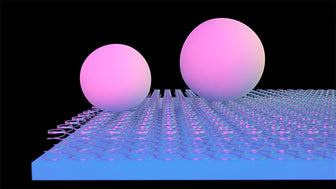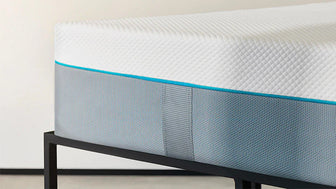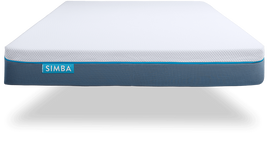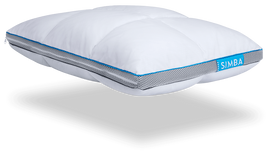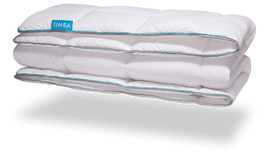Blue light and sleep
You’ve probably heard a lot about blue light and why you should avoid it before bed, but there’s so much information available it’s hard to sort science from fiction. The truth is that we can’t avoid blue light entirely - and we shouldn’t try to! The thing that really stops us getting our full eight hours is overexposure, usually from screens in the home (nocturnal phone scrollers, we’re looking at you).
To help you get started, here’s our beginners’ guide to blue light, and how you can stop it disrupting your sleep.
What is blue light?
The physics is complex, but we’ll just give you the simple stuff. The light emitted by the sun is made of a huge range of coloured light rays. We see these rays all at once rather than individually, and together they make sunlight, also known as ‘white light’. Blue light is just part of the spectrum that makes sunlight!
But here’s the thing - many of the electronic devices we use emit lots of blue light, which is one of the most disruptive when it comes to nodding off. It’s not such a big deal if we’re exposed to these screens during the day, as the sun gives off blue light anyway, so our bodies are pretty used to it. But getting too much blue light at night is a different story, because that’s when we naturally shouldn’t see it.
Blue light and the human body
How often do you fall asleep at sunset? We’re willing to bet the answer is almost never. Our distant ancestors, on the other hand, were very different. They slept when their bodies told them to, and with only the sun (or campfires) providing light, their circadian rhythms (AKA their body clocks) worked largely in tandem with the day-night cycle.
Today, our customary eight-hour working days leave us stretching out our evenings for long as possible; we watch television, scroll through our social media feeds, surf the internet and get stuck into eBooks. But although our lifestyles have evolved far beyond those of our cavemen ancestors, our body clocks have stayed firmly the same.
So how does blue light affect your sleep?
Our bodies are perfectly primed to respond to sunlight: when the sun is up our bodies know we need to be awake and alert, and when the sun is down it’s time to sleep. That’s because in the absence of sunlight our bodies produce a hormone called melatonin, the ‘sleep hormone’, and we feel ready to nod off.
Here’s the problem with blue light in the evening: it suppresses our melatonin production. Without enough melatonin our bodies are tricked into thinking it’s daytime, leaving us wide awake when we should be out for the count. It means that, unlike our ancestors, we end up suffering from insomnia and sleep deprivation - and we all know how much bad sleep can affect us, from making us see red to messing up our skin. That’s why it’s best to avoid screens during the evening.
Could I use a blue light filter instead?
You read our minds! If you have trouble sleeping, staying away from screens is a good way to relax and mentally switch off. However, we know that in the real world this isn’t always possible, and old habits die hard.
If you can’t stay away from your screen at bedtime, a blue light filter might just do the trick. Try something whose medically-rated tech filters block out blue light while keeping your displays crystal-clear. A filter can help you enjoy restful sleep even after that late-night Instagram scroll - with no retro orange tinge that built-in ‘night shift’ software can cause.
Eight tips for avoiding blue light
It can be difficult to completely banish blue light from the bedroom, but you can still help yourself with some handy hacks.
- Avoid bright screens for between two and three hours before you turn in. That includes phones, TVs, and laptops - no cheating!
- If you can’t kick your screen habit, make sure you’re protected by a filter.
- Many electronic devices come with a built-in ‘night mode’. It isn’t a perfect solution, but it might help you drop off nonetheless.
- Expose yourself to more bright light during the day. This will boost your mood and your alertness, and could increase your ability to drop off later on.
- Dim the lights in your home a couple of hours before bed to mimic sunset. Alternatively, invest in smart lights and set them to a warm hue as the day draws on.
- Make sure you can make your bedroom dark in the summer. There’s nothing worse than opening your eyes at 5am on a Saturday! Just as artificial light can keep you awake when you want to be asleep, so can natural light - at all the wrong times.
- Go back to physical books so you’re not tempted to read from a screen instead. (It’s relaxing, too.
- Make sure you schedule regular optician appointments to check your eye health, as excessive blue light is sometimes linked to eye problems. Most people don’t have anything to worry about, but it’s good for your peace of mind.


